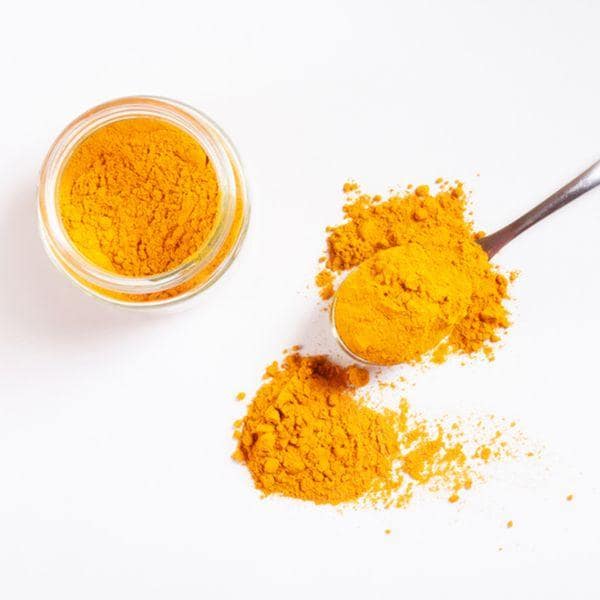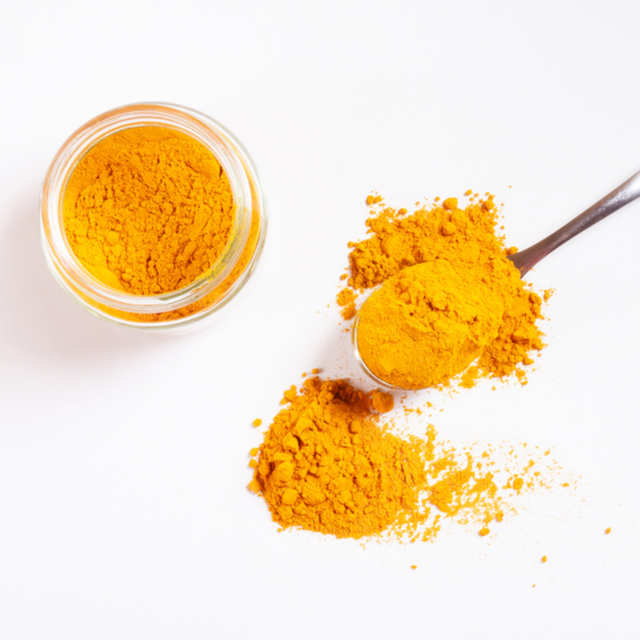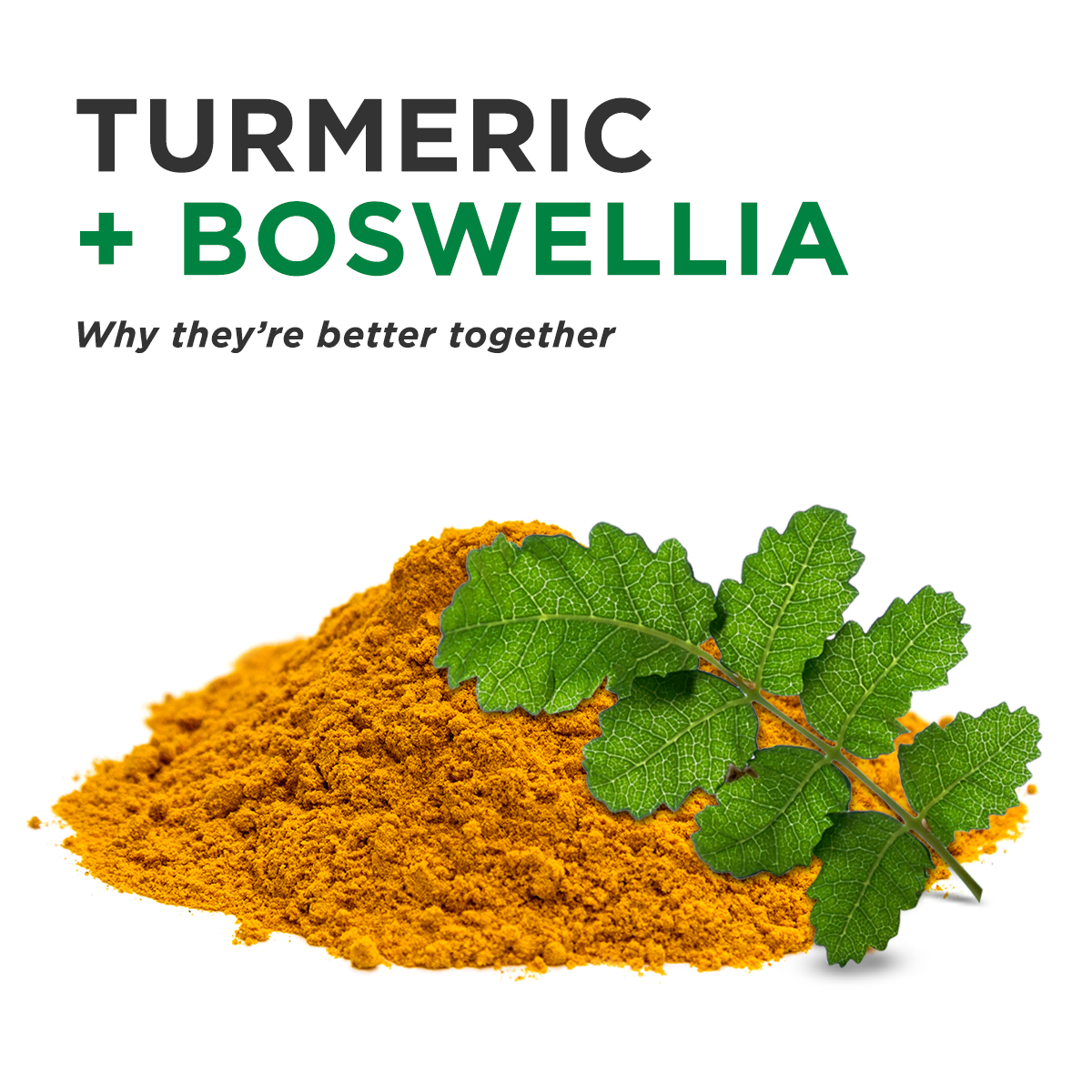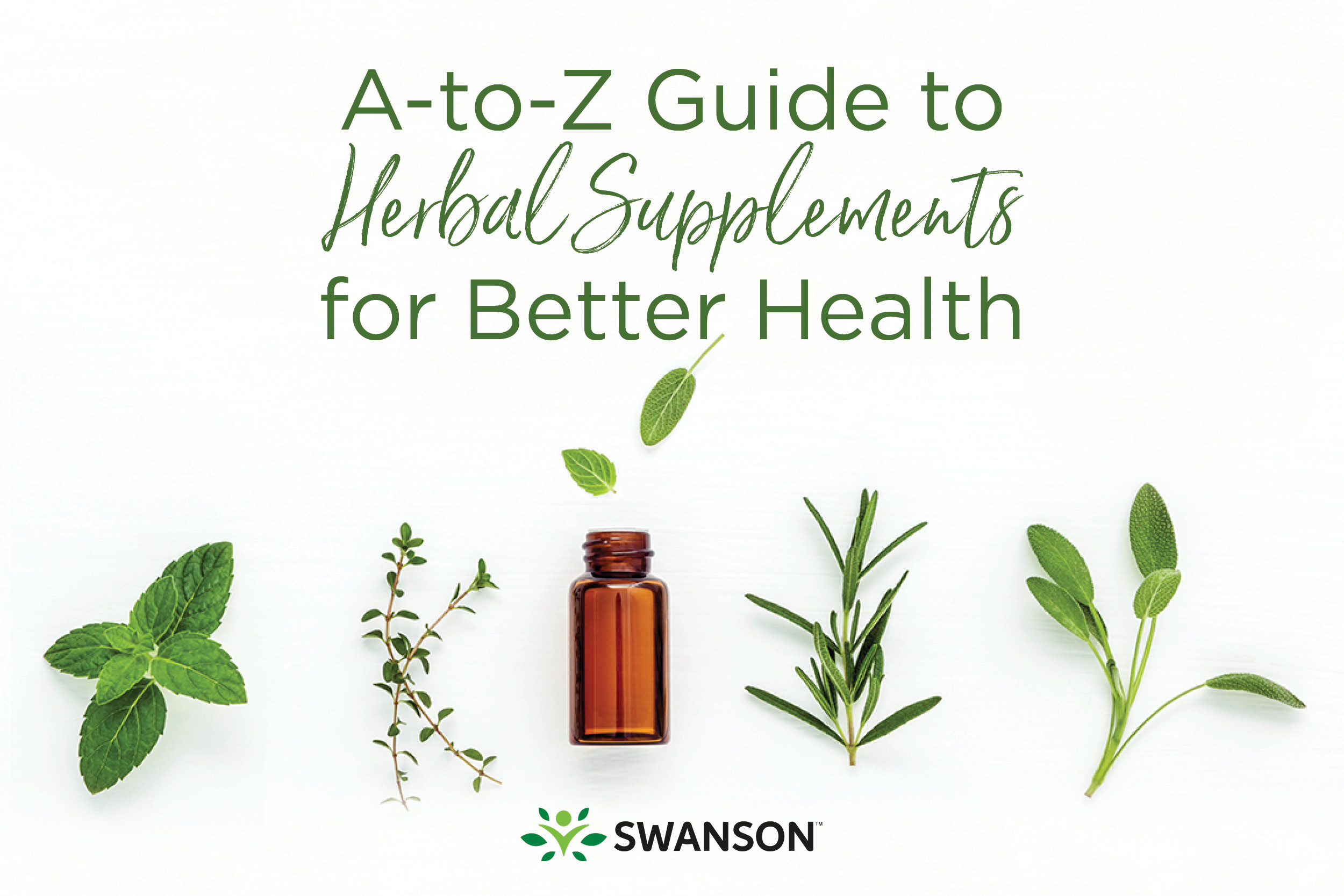Turmeric vs. Curcumin
You’ve probably heard a lot about the benefits of turmeric and curcumin because of, highly-publicized studies highlighting their healthy properties. And you might have noticed that in some cases the two are used interchangeably, touting many similar benefits, which can get a little confusing. So, what’s the difference? And which one is better to take as a supplement?
The two are often mentioned together because curcumin is derived from turmeric. Turmeric has been used as an herbal remedy for thousands of years, and its use over the centuries is well documented for promoting health. So, naturally, researchers want to discover what makes turmeric so healthful. They've learned that one the biggest health-promoting components of turmeric is curcumin. But does that mean curcumin is always better? Not necessarily. It isn’t quite that simple!
What is the Difference Between Curcumin and Turmeric?
Turmeric is a plant scientifically known as Curcuma longa. It’s the roots, or “rhizomes” of this plant that are used in culinary spice powders and herbal tonics. Curcumin is a naturally occurring compound within the turmeric plant’s roots. It's a carotenoid pigment that has strong antioxidant activity and gives turmeric its flashy yellow color. There are two other compounds in turmeric that are related: demethoxycurcumin and bisdemethoxycurcumin.1 Collectively, they are known as curcuminoids.
You may be familiar with some other carotenoids, like lutein and zeaxanthin for vision health, and beta-carotene, which the body converts into vitamin A, all of which lend color pigmentation to the foods that contain them. In plants, carotenoids help with absorbing light to be used as energy for photosynthesis and functioning as antioxidants to defend against free radicals.2 It might seem a little strange at first to consider that pigments are good for us, but our bodies are complex and use natural substances in ways we might never imagine! Numerous research studies have indicated that curcumin may be able to influence multiple cell signaling molecules,3 which is a complex explanation for why repeated studies show curcumin having such diverse and positive effects on our health.3
Which is Better: Turmeric or Curcumin?
So, if curcumin comes from turmeric, does it matter which one you take? Is one better than the other? There are arguments for both sides. Many experts agree that we should get most of our nutrients in the way nature intended, from whole foods, because other nutrients within our foods may also play a role in how our bodies process them and the benefits we receive from consuming them. This is also why you’ve probably heard that you should eat most fruits without peeling off their skins since the peels of fruits contain nutrients too.
Turmeric Roots and Turmeric Extract
Turmeric roots contain a number of substances beyond curcumin. The turmeric spice you might have in your kitchen is made by drying and grinding whole turmeric root into a powder. Turmeric extract is a little different. It’s made by shredding turmeric root and letting it sit in edible solvents for several weeks before straining, and the result is a strong elixir. Turmeric root is also used in wellness teas.
Curcumin Extract
Curcumin extraction is a little more complicated. Curcumin only makes up approximately 3% of the weight of turmeric root4 and it’s extracted by a scientific method known as chromatography,5 which separates each of the curcuminoids and allows curcumin to be isolated.
The amount of curcumin is lowest in turmeric root powder, at around 3%, higher in turmeric extract, which can contain up to 95% curcumin,4 and then there’s 100% curcumin extracted from turmeric. Researchers say that extracted curcumin has more antioxidant activity when compared to turmeric powder, but the other curcuminoids in turmeric (demethoxycurcumin and bisdemethoxycurcumin) also exhibit antioxidant activity.5
Curcumin and Turmeric Absorption
Another factor to consider in the curcumin vs. turmeric conversation is absorption. Neither curcumin nor turmeric is absorbed well without a little help from fats or oils.4 Turmeric root contains some natural oils that may enhance the bioavailability of the curcumin within it, but both are absorbed best when consumed with additional fats.6
That might be a potential advantage to using ground turmeric as a culinary spice because you will probably be more likely to combine it with fats or oils in foods. Turmeric lattes are even becoming popular, which is great because of the natural fats in milk. But you’ll often find supplements that combine curcumin with healthy essential fatty acids, like our krill oil and curcumin supplement.
Black pepper may also help with bioavailability of turmeric because of a compound in black pepper known as piperine, which may keep turmeric compounds from breaking down during digestion and allow the compounds to stay in the body longer.6
What is the Best Form of Turmeric?
When choosing any supplement, always look for options with ingredients that are ethically harvested and pure, without hidden ingredients behind proprietary blends. If your goal is to consume turmeric root without adding it to your food, a highly-concentrated premium turmeric supplement may be best for you. If you are looking for supplemental turmeric with the most curcumin content, you might opt for turmeric extract. And if your tummy is sensitive to standard turmeric, a fermented turmeric extract may be easier on your stomach, and it provides some additional digestive support.
What is the Best Form of Curcumin?
The best curcumin supplements promote superior absorption either because of how the curcumin supplements are created (which is the case with highly-absorbable Theracurmin®), or by combining curcumin with other supplements that make it easier for your body to absorb, like krill oil and curcumin.
Researchers have taken note of the extremely high bioavailability of Theracurmin®, including in the study below, which yielded impressive results from taking Theracurmin® for cognitive health. Theracurmin® is more efficiently absorbed because it's created by dispersing curcumin with colloidal submicron-particles, which make it easier for the body to absorb the curcumin. Compared to other supplements used in one study, the concentration of curcumin in the participants that took Theracurmin® was between 5.6 and 10.7 times higher than other curcumin supplements used.7
Curcumin for Memory, Mood and Attention
The University of California has published the results of an exciting study on the potential benefits of curcumin for memory, mood and attention. The type of curcumin used in the study was Theracurmin®, which was chosen due to its “more rapid absorption and peak concentration.”8
The study was a double-blind, placebo controlled study following 40 subjects between the ages of 51 and 84 for 18 months. The participants in the study were nondemented, but had complained of having memory lapses in the past. It was the first study of its kind and the results were truly newsworthy. Significant improvements in memory, attention and mood were noted among the volunteers taking Theracurmin®.8
Researchers in the study provided participants with 90 mg of Theracurmin® twice per day, for a total of 180 mg per day. If you want to try it for yourself, you’ll find the same type of curcumin used in Swanson Ultra High Absorption Theracurmin®. However, our Theracurmin® supplement is standardized to 27%, so you will need to take three capsules twice each day, for a total of six capsules per day, to reach the intake used in the study.
Curcumin or Turmeric?
Both curcumin and turmeric have their advantages. Turmeric powders and supplements offer a whole-foods approach, retaining more of the root’s nutrients as nature intended. Curcumin supplements provide an isolated form of the most active antioxidant compound found in turmeric, and if you want the highest-powered, most bioavailable form of curcumin, Theracurmin® is an excellent option.
No matter your choice, as long as you choose a high-quality supplement from a trusted source, both turmeric and curcumin have a lot of potential benefits to offer.
Learn more about the benefits of turmeric and curcumin in the article What is Turmeric?
*These statements have not been evaluated by the Food and Drug Administration. These products are not intended to diagnose, treat, cure, or prevent any disease.

About Lindsey Toth, MS, RD
Lindsey is a nationally recognized registered dietitian and nutritionist with a soft spot for pie. She empowers people to take charge of their health by finding the balance between the pleasure and nourishment in food. Her philosophy is that you should take care of your body because it’s the only permanent home you have. It’s what inspired her to pursue a career in nutrition.
Sources
1. Curcumin. Profiles of Drug Substances, Excipients, and Related Methodology. Read source
2. Carotenoids. Oregon State University. Read source
3. Therapeutic Roles of Curcumin. The AAPS Journal. Read source
4. Turmeric Spice vs. Turmeric Supplements. ConsumerLab. Read source
5. Curcumin Chromatography. Journal of Agricultural and Food Chemistry. Read source
6. Turmeric and Black Pepper. ConsumerLab.com. Read source
7. Curcumin Absorption. Journal of Nutritional Science and Vitaminology. Read source
8. Effects of a Bioavailable Form of Curcumin. The American Journal of Geriatric Psychiatry. Read source




